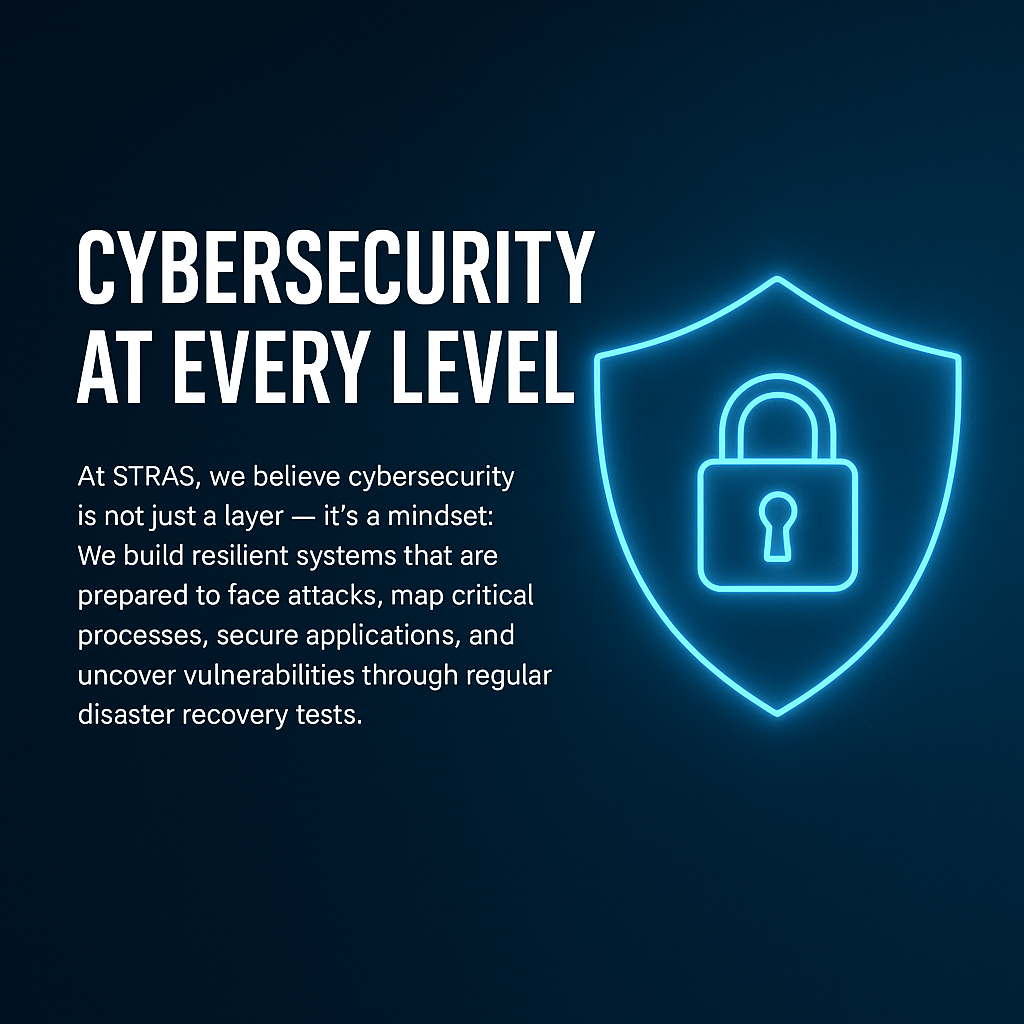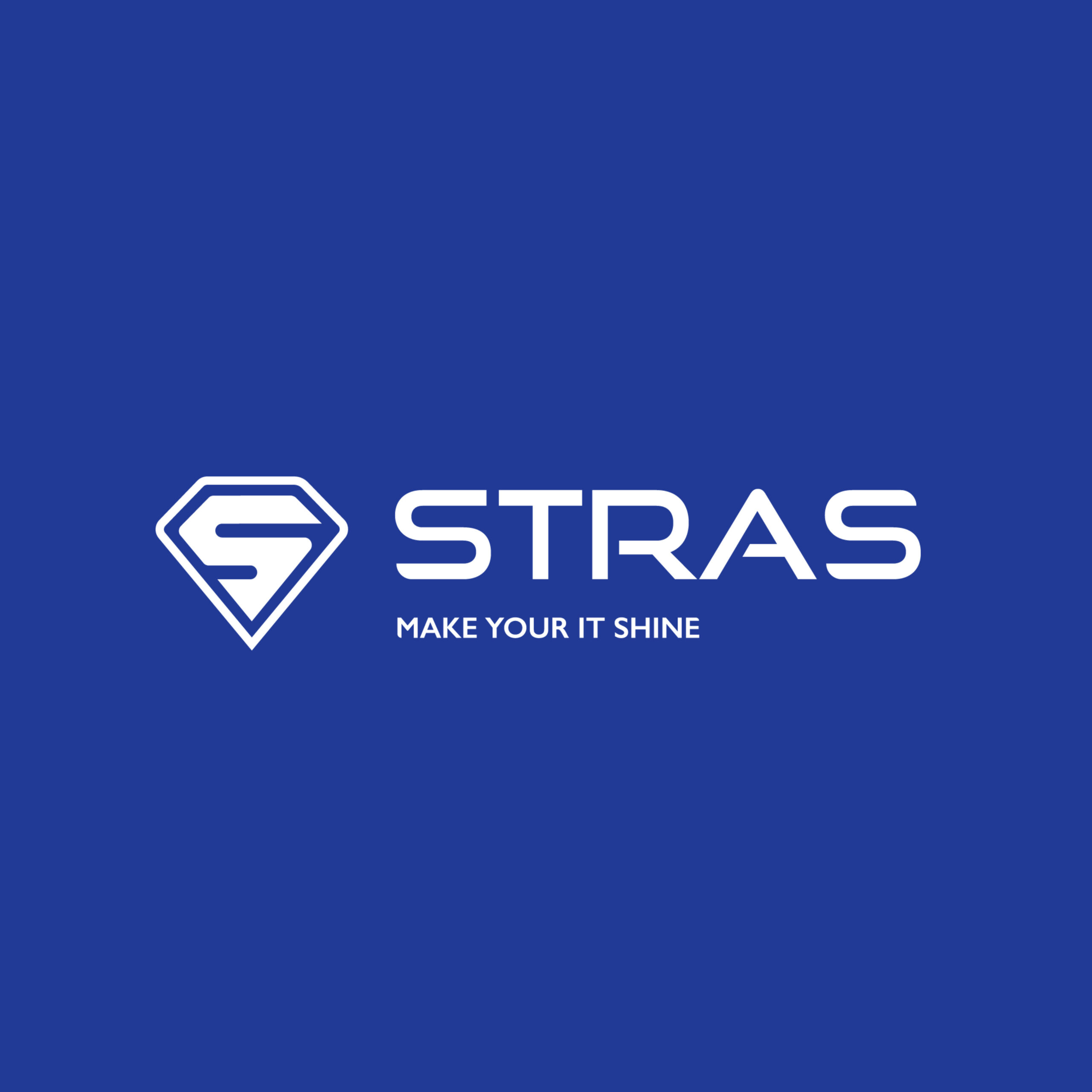Our DNA

At STRAS, we believe cybersecurity is a corporate mindset.
True protection happens at every Cybersecurity at Every Level – Building Resilience, Protecting Your Future. Starting with users, through smart training programs and clear communication, and extending through powerful technologies and, most importantly, world-class experts.
We embed security right from the start: integrating change management into projects, implementing clear and precise Identity and Access Management (IAM) strategies, and setting up rigorous access certification processes.
Where developers secure their code through safe development pipeline, we propose automate tests to catch vulnerabilities before they reach production. Cybersecurity also means safeguarding the backbone technologies like middleware, web servers, databases, securing data flows and ensuring infrastructures are always up-to-date.
At STRAS, we recommand you to map critical business processes, secure the applications that support them, and regularly run disaster recovery scenarios to reveal hidden vulnerabilities. This proactive approach fuels concrete remediation projects and keeps our clients one step ahead of ever-evolving threats.
Cybersecurity is not a product. It’s a system. A strategy. A culture. And we are here to build it with you.
RBAC
Logical Framework
Role-based access control (RBAC) restricts access based on a person’s role within an organization and has become one of the main methods for advanced access control.
An RBAC model allows organizations to manage user access based on clearly defined roles, ensuring that employees only have access to the information and systems necessary for their duties.
By aligning access rights with job functions and automating the employee lifecycle, from onboarding to internal mobility and offboarding, companies can significantly reduce the risk of unauthorized access or data breaches.
Access management plays a critical role in safeguarding organizational assets, sensitive data, and intellectual property. Traditional access control mechanisms, characterized by manual assignment of permissions, are increasingly becoming inadequate in today’s dynamic environments. Logical framework offers a structured approach, aligning access privileges with job roles, responsibilities, and organizational hierarchies. Moreover, migrating to cloud services facilitates seamless access provisioning, centralization of resources, and enhanced collaboration across distributed teams.



